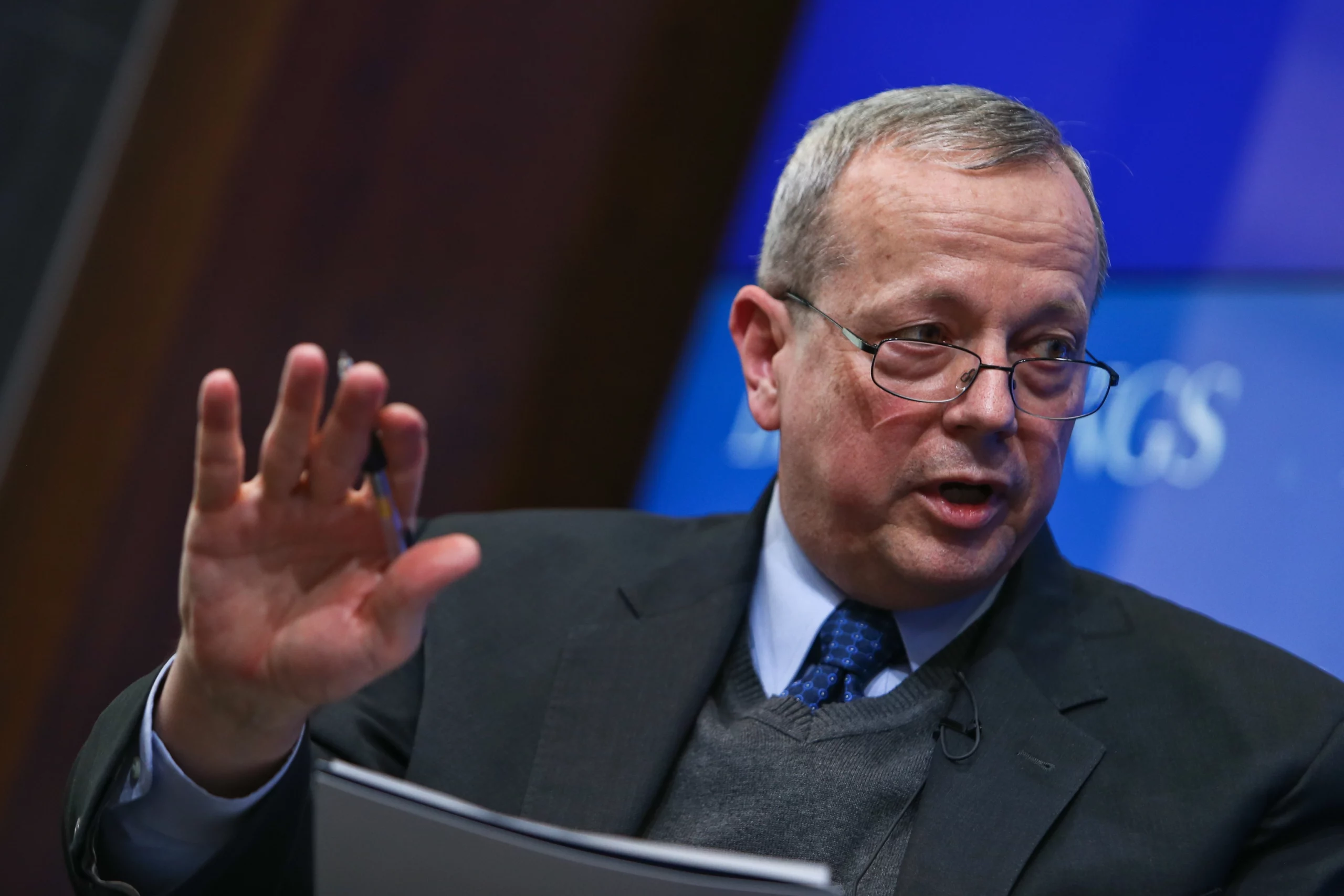US authorities claimed Allen lobbied then-National Security Adviser HR McMaster to persuade Trump to change his views on the Qatar blockade, according to media reports.
The president of the Brookings Institution resigned on Sunday amid a federal inquiry into whether he unlawfully lobbied on behalf of Qatar at the height of the 2017 GCC crisis.
In a letter to the institute, retired General John Allen said he was leaving with a “heavy heart,” though he failed to elaborate further.
“I know it is best for all concerned in this moment,” he added.
Allen, a veteran four-star Marine general who headed the US and NATO forces in Afghanistan, made his announcement less than a week after reports confirmed the FBI had confiscated his electronic records as part of the investigation.
Allen has not been charged with any crimes and has denied any misconduct through a spokesman.
The Brookings Institution, which had placed Allen on administrative leave the day after the initial report by the Associated Press, issued a statement thanking him for his leadership during the coronavirus outbreak, as well as other contributions.
The institution said more details on the search for a new president would be released soon.
Individuals working for a foreign government must register with the Department of Justice, as per US law.
The most recent developments are part of a larger inquiry involving overseas lobbying by a number of US individuals.
Richard G Olson, the former US ambassador to the United Arab Emirates and Pakistan, pled guilty to federal charges of illegal foreign lobbying on behalf of Qatar last week.
Olson also disclosed that the US general who oversaw US and NATO forces in Afghanistan until late 2017 was involved in the investigation.
Imaad Zuberi, a well-known political donor who was charged with corruption and is currently serving a 12-year prison sentence, is another figure linked.
Olson, Zubeiri, and Allen failed to register their lobbying efforts, which date back to the 2017 GCC crisis, according to reports on the case.
‘Preventing a regional war’
Saudi Arabia, the United Arab Emirates, Bahrain, and Egypt enforced an unlawful land, air, and sea blockade on Qatar at the time. According to court documents, Allen was instrumental in influencing the US’ attitude during the dispute, when former President Donald Trump sided with the quartet against Doha.
According to documents obtained by Al Jazeera, Zubeiri regarded the GCC schism as a “business opportunity.” After that, Zubeiri asked Olson to begin selling lobbying services, and the latter brought Allen into the fray.
Allen did not properly disclose his position in the lobbying and did not specify “that he was simultaneously pursuing multimillion-dollar business deals with the government of Qatar,” according to FBI agent Babak Adib in a search warrant application.
Allen also allegedly lied about his employment for Qatar during a 2020 interview with law enforcement officials, according to Adib, and vehemently rejected claims that he served as a “Qatari agent.”
Allen defended his actions by claiming that he was attempting to prevent a regional war that would put US troops in danger. The US Al-Udeid Air Base in Qatar is the largest in the region, with at least 10,000 troops stationed there.
Allen’s spokesperson, Beau Phillips, told the AP last week that his client “voluntarily cooperated with the government’s investigation into this matter” and that he had “not received a fee for his efforts”.
Qatari officials have not responded to requests from the Associated Press for comment about the Allen investigation, the report added.
Supporting Qatar
US authorities claimed Allen lobbied then-National Security Adviser HR McMaster to persuade Trump to change his views on Qatar, according to media reports.
The former general said the Qataris wanted the White House or the US State Department to publish a statement calling on all parties engaged in the disagreement to “act with restraint” in an email to the former adviser.
Former Secretary of State Rex Tillerson issued the statement within two days, according to federal law enforcement, in which he urged the quartet to “ease the blockade against Qatar.”
Olson and Allen allegedly travelled to Qatar to meet with the country’s leader, according to federal authorities.
Before the visit, Allen demanded a $20,000 “speaker’s fee” from Olson and Zubeiri, according to an affidavit. “Work out a fuller arrangement of a longer-term relationship,” the retired general added.
Zubeiri had also paid for Allen’s first-class ticket, according to the document.
“At the same time he was lobbying US government officials on behalf of Qatar, Allen pursued at least one multimillion-dollar business deal with the Qatari government on behalf of a company on whose board of directors he served,” according to the affidavit.







